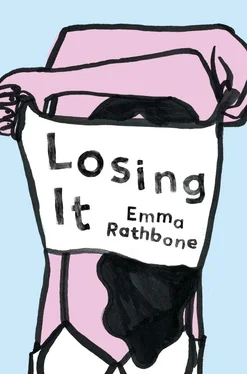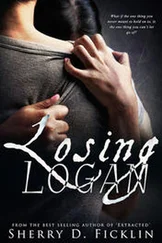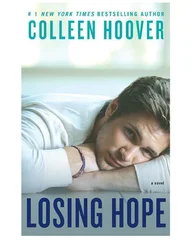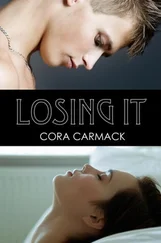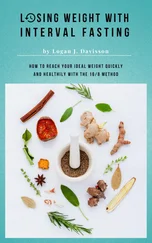“Ha!” I said. “I think for me it was the Amaretto at the back of my parents’ liquor cabinet.”
“No!” she said wildly. “We were in a library . It was actually very serene . There were marble elephants .”
I had no idea what she was talking about.
More people had trickled up the stairs. There were many different conversations happening, and there was just enough chatter, enough sporadically erupting laughter, to lend a sense of activity and festivity. I said goodbye to Elliot and went back up and started gathering plates and empty glasses and crumpled napkins. I looked over at Viv. Her cheeks were red. She was motioning with her arms. Someone tapped her on the shoulder and gave her a card. She seemed pleasantly pulled in all directions. An image would stay with me — Viv, pointing something out on one of her plates, tracing a line with her pinkie finger, her eyes generous, engaged, her face knitted with the strain of trying to explain something, nodding, showing off a little but also wanting everything for you.
I stood outside the gallery, thanking people and saying goodbye. The small town we were in seemed to be made up of one main street and nothing else. After a series of shops ended, there was nothing but fields and trees and power lines in the distance. Viv came out, talking to a stranger. They said friendly goodbyes and parted ways. She had her bag and was ready to go, and it seemed that she was going to walk right by me, but she stopped there and gave me a resigned smile. “Are you all packed?” she said, folding the small satin scarf she’d been wearing.
“Pretty much,” I said.
“It’s a long drive,” she said.
“Yup. But I’ve got my phone. I’ve got directions.”
She was squinting at me, looking at me distantly, almost nostalgically, the way you’d look at a sunset. It was another humid, hot day, with everything slumping in the late-day haze. There was a charcoal smell from somewhere, and a tall redbrick building cast a long, lazy shadow across the street. Her eyes wandered over my shoulder. We stood there. She seemed to be wrestling with herself. Finally, she said, “I think it went well.”
I felt a rush of relief, grateful she’d given me that. She looked, not happy exactly, but fortified.
“Yeah?” I said. “You do? I mean, I do, too. Your plates. It’s obvious. People love them.”
She smiled — she knew it, too. She adjusted the shoulder strap of her bag.
“Well,” she said, and continued walking to her car.
—
I saw Elliot twice more before I left. Both times it was the same — I went to his apartment and he made dinner and we watched the screen for a while, searching for a signal, and then we had sex. It wasn’t a whole lot different from the first time we did it, but I became more comfortable, more aware of what was going on. It was interesting, and involved, and companionable, and like going out of time for a little while. You could see how it could get better and better. You could see why someone would just want to do this thing, and not do anything else. I liked his lean body, and the way he’d prop himself up on his elbow when we were done, and we’d talk. But there was never any mention that we’d see each other after I left.
My last night there, in his bed, I stared at the cover of the same paperback, The Afternoon Planet . It had a sphere on it, and in that sphere was an entire city, and it was all imbued with hazy 1970s light.
“Keep it,” he said. “Take it with you.”
“I thought you said it wasn’t any good.”
“It got better,” he said. “You can remember me by it.” He took it and then opened the cover and pointed at something. “See.”
It was a stamp. It read: “Please return to Elliot Grouse at 1117 Willowtree Road, Allentown, PA.”
“It’s from when I was a kid,” he said. “But I still use it and write it in all my books. I like to think of my old house still getting these sci-fi paperbacks.”
I closed it, and smiled, and kissed his shoulder.
—
Strangely, and unexpected to us both, Viv and I started writing e-mails back and forth after I was gone. It began when I got in touch about a pair of earrings I’d left there. She wrote back and said she’d found them one afternoon in the sunroom, which she was having remodeled. I pictured the whole thing getting bulldozed — the floor and the careworn pillows, the wooden coffee table, all of it being replaced by modern furniture and gleaming fixtures.
In our e-mails, we seemed to find a frankness and humor that we’d never been able to achieve in person. I found myself chatting to her about my day — the European history class I was taking at San Antonio Tech, how I’d gotten a part-time job as a swimming instructor at the gym to make some money, what it was like to be in my old room. She kept me updated on her friends and the little dramas that were happening at her office. I found myself looking forward to her e-mails. She was funny in her writing and had a flair for describing the things that people did, the strange policies she had to adjust to at work, sending it all up in a sharp, wry way.
She’d decided to pay someone to make her a proper website. She’d submitted her plates to more art shows and had even received an honorable mention at a Southern Folk Art Exhibit she’d gone to with one of her friends, and that was pretty good for someone with hardly any formal artistic background. She was even thinking of going to a workshop in Vermont. And there had been other interest, too, in selling her plates.
I wish I could say she’d met someone. That she’d finally had some throaty relationship where she came out of her shell, and discovered earthly pleasures and really explored them. Wouldn’t that be nice? To think that life would just be that way? I’m not saying it still can’t.
I remember sitting on the front porch on one of my last nights there. The front door was open and music was wafting outside. It was warm and spongy and I was barefoot, wearing a big shirt. It was a dark night. There was a thick plaid of insect sounds and every once in a while you could see the light from a car crawl by in the distance. Feel young, I kept telling myself. Just feel young. I was still only twenty-six. Generally, I still felt dogged with anxieties about the future — what I was going to do when I got back to Texas, if I was going to go back to school or not, what was going to happen with my parents. I kept thinking of that plaza at San Antonio Tech, with the spindly new trees, where my mom took her test. I pictured myself walking across the way, in the sun, wearing a backpack. And then, unexpectedly — a heavy bubble of happiness rose in me.
It’s strange, but my instinct was to suppress it, because it somehow didn’t seem fitting. Why would you do that? Why would you feel the need to push down a feeling of joy that kicked up from the world? Just go with it, I told myself, because you never know. The grain of it doesn’t tell you anything about its volume.
Thank you, William Boggess — your faith in this meant the world to me. Thank you, Laura Perciasepe, for your genius edits, which made this book a much better version of itself. Thank you, Julie Barer, for your guidance. For your insight and encouragement, thank you to Alena Smith, Gina Welch, Matt White, Molly Minturn, Nell Boeschenstein, and Kelley Libby. Thank you to my family — Mom, Dad, Ben, Dan, Nicole, and Melanie — and thank you to the Brocks. Thank you to Jynne Martin, Liz Hohenadel, Margaret Delaney, Alex Guillen, and everyone at Riverhead. Most of all, thank you to Adam, my husband, for more than I could ever name.
Читать дальше
Конец ознакомительного отрывка
Купить книгу
